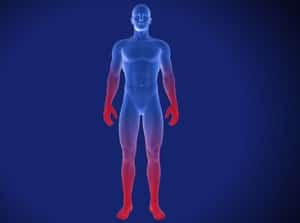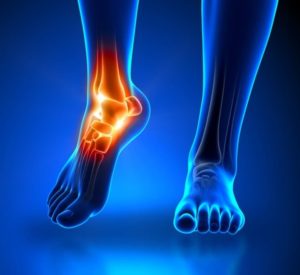
Ketamine Therapy Reduces CRPS Pain
Complex Regional Pain Syndrome (CRPS) is an extremely excruciating and progressive neurological pain condition that agonizes and disables millions of Americans. If you are in this group, or care for someone who is, learning more about this ailment can help you to better understand its debilitating effects and what some of the solutions are. Discover how Ketamine Therapy Reduces CRPS Pain and why its becoming the favored solution of leading experts.
Causes
In over 90 percent of patients, CRPS arises after minor injuries including bruises, sprains, strains, cuts, burns, whiplash, falls, broken bones, limbs immobilized in casts, medical procedures (including needle sticks), and surgeries. In rare cases, doctors cannot identify precipitating events. Commonly affected locations include arms, hands, wrists, legs, ankles, and feet.
Elaborate interactions between the sensory, autonomic, nervous, motor, and immune systems lead to CRPS. An injury changes how the central nervous system controls these processes. Instead of healing normally, your brain and spinal cord get flustered. An atypical response magnifies an injury’s consequences. Like allergies, some people respond excessively to certain triggers that do not bother others.
Symptoms
Constant, insistent nerve pain can make you feel like a flaming mass of agony and distress. CRPS is known to be one of the most painful conditions that humans endure. An affected extremity may swell uncontrollably, blocking circulation to your small nerves. Your brain receives signals of relentless burning, which makes coordinating muscle movements and using that limb very challenging, if not impossible. Abnormal motions may plague your troubled appendage(s). Fixed unnatural postures are most common, but jerking or tremors can transpire as well. Those effects compromise circulation further while worsening physical torment.
A squeezing sensation on affected limbs can occur. You may also experience excessive sensitivity to touch or even contact with clothing. Pain can begin in one bodily area and then travel to additional regions. A toe or finger that endures an injury could spread pain through that entire leg or arm or even transfer it to your opposite limb. CRPS often afflicts multiple extremities or even the entire body.
Since damaged nerves cannot control blood flow or body temperature properly, abnormal microcirculation develops. Intermittent or constant fluctuations in body temperature can result in abnormal variation in the afflicted appendage’s flesh tone. Irregular sweating patterns may inundate sensitive or surrounding areas. Your skin may change color, appearing red, purple, blue, blotchy, or pale. Its texture may become thin and shiny. Standard hair and nail growth patterns may vary. Injuries and invasive procedures can aggravate or spread pre-existing pain.
Typical Patients
CRPS occurs three times more frequently in females than it does in males. The typical diagnosis age is 42 however, small children can get it as well. Injury-prone young girls can be sufferers, but it is more common among teenagers. CRPS rarely affects the elderly.
Diagnosis
Getting an accurate diagnosis with suitable treatment early is the key to relief of CRPS. Sadly, too few physicians and patients recognize CRPS symptoms. Unbearable sensations are so unforeseen and vast that some skeptical doctors doubt patients. Most people consult an average of five different providers before discovering the true cause of their prolonged, severe pain. Although this malady is not a mental disorder, psychological issues often surface if physicians, relatives, friends, or colleagues disregard your complaints.
Preferred Regimen
Top specialists believe that intravenous (IV) infusions of ketamine can block and even reset pain receptors more effectively than anything they’ve seen before, making ketamine therapy a rapidly growing remedy for delivering the greatest relief. Ketamine Therapy Reduces CRPS Pain and studies also show that ketamine treatment provides significant antidepressant effects, which is significant because major depression often coincides with chronic, unmanageable CRPS.
Ketamine Clinics of Los Angeles president and founder Steven L. Mandel, M.D. completed his 2,500th infusion recently. He has extensive experience with and knowledge of treating a wide variety of mood disorders and pain conditions with IV ketamine infusion therapy. Fill out our brief contact form and our staff will be happy to answer any questions and let you know if you are a Ketamine Treatment candidate. We have a 70-percent success rate in the treatment of pain and an 83 percent success rate in the treatment of mood disorders. These results are much better than those of other clinics and clinical trials. Our exceptional results are partially due to:
- Customizing the rate of infusion to fit each patient’s individual needs
- Lengthening session duration and increasing dose
- Other techniques that have been refined by Dr. Mandel over a lifetime of practicing anesthesiology and by personally administering over 2,500 infusions
There are various treatments available for CRPS, although few are effective. Even among ketamine treatments, there is a wide variety of methods used. Some of them are: subcutaneous, intramuscular, intranasal, and oral ketamine, but none of these other methods of administration have been proven effective. When we talk about how Ketamine Therapy Reduces CRPS Pain, it's important to know we are exclusively referring to IV ketamine infusions because this is the only method that is supported by extensive clinical research. Results are often immediate, have no long-term side effects, and relief can be long-lasting. Please feel free to comment or ask questions below.
Dr. Mandell Discusses Ketamine Infusion Therapy for Pain Treatment
For more information about treatments for depression, bipolar, anxiety, post-traumatic stress disorder (PTSD), obsessive compulsive disorder (OCD), fibromyalgia, pain syndromes and other conditions contact us at the Ketamine Clinics of Los Angeles in Southern California (Orange County) by clicking here or calling 310-270-0625.



